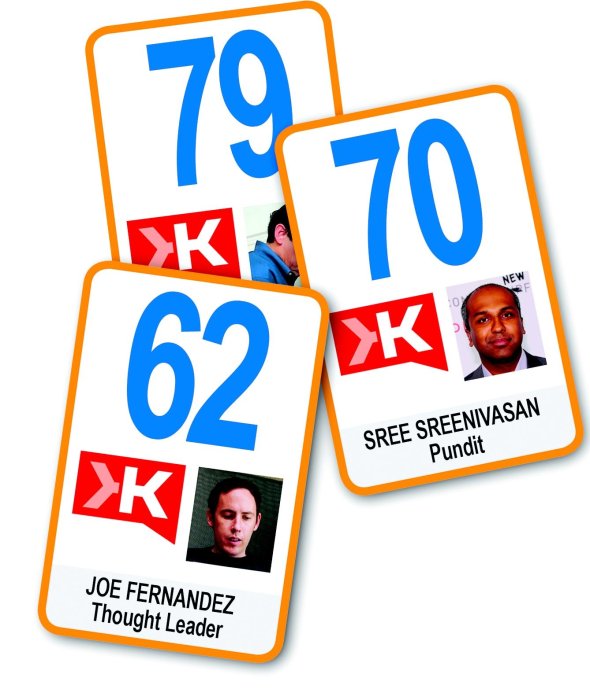By Doug Stephens
Celebrities have long been known to receive special treatment. The best seats in the house, front of the line access to the hippest clubs and healthy discounts on the things they buy.
Now, social networks have given rise to a new breed of celebrity – the Influencer. While they may not be as well known as George Clooney or Katy Perry, they may indeed have far
more direct influence on the buying behavior of those within their respective social or professional networks. The way they roll and what they like means a lot to their followers.
Influence is the new power
There was a time when if you wanted to rub shoulders with real influencers, you’d have to work your way into elite circles in places like Martha’s Vineyard, Palm Beach or Greenwich Connecticut. It used to be that money, first and foremost begat influence. Today the opposite can be true. Influence, in many cases generates money. Just about anyone who builds an authoritative enough online voice can wield significant power.
For businesses, identifying and connecting with influencers has never been easier than it is today. Rating system Klout for example, ranks users by the size and engagement level of their social/professional network. Based on this, it calculates what it calls a KLOUT score – a measure of the users overall influence across specific topics – which could include anything from business to religion and everything in between. While Klout’s accuracy is a topic of hot debate, most can agree that it’s at least directionally indicative of one’s online swagger. Other networks like Twitter, make it simple to see who commands the greatest following within a certain topic area. Regardless of what you sell, zeroing in on the taste-makers in the crowd is easier than ever before.
Businesses are awakening to influence
It’s not unusual for retailers to reward their biggest spenders with special perks and privileges. Now they’re waking up to the potential that influencers possess to get others to buy as well. For example, online retailer Gilt Groupe recently announced an offer giving Klout users special discounts proportionate to their Klout score. Similarly, California fashion retailer Volga Verdi offered customers specific discounts based on the size of their social network – more friends, bigger discount. All in an effort, of course, to get these same influencers to evangelize their brand to flocks of fans, followers and friends.
Defining Influence
It’s far too early in the game to determine precisely how effective these kinds of promotions are but there are also some inherent risks. First among these may be quite simply recognizing and rewarding the wrong people. The size of someone’s network is not always the most accurate gauge of influence. Most experts agree that the absolute number of followers is relatively less important than the percentage of those followers that actually do what the influencer recommends or endorses.
Then there’s the issue of offline influence. Just because someone isn’t a power-tweeter Facebook user, doesn’t render them non-influential.
So, it’s important that marketers approach influence marketing with eyes wide open to the potential risks of giving away profit margin to those customers who don’t really deserve it and overlooking those customers who do. It’s hardly an exact science.
The Corruption of Connection
Finally, there remains a social component to all this that we shouldn’t lose sight of. If this marketing approach becomes pervasive (and it probably will, at least for a while), it runs the risk of undermining much of the inherent spirit of social networking – that it’s social, not commercial. Already in social networks, some users are suspiciously indiscriminant in their efforts to connect and gather followers. Their motivation is questionable. Imagine having good reason to believe that these requests for connection are merely a means to a higher discount or more free stuff.
I suppose if there’s a moral question here, it’s this…are we conceivably turning “friends” into little more than bargaining chips for a better deal? Human coupons waiting for redemption.


